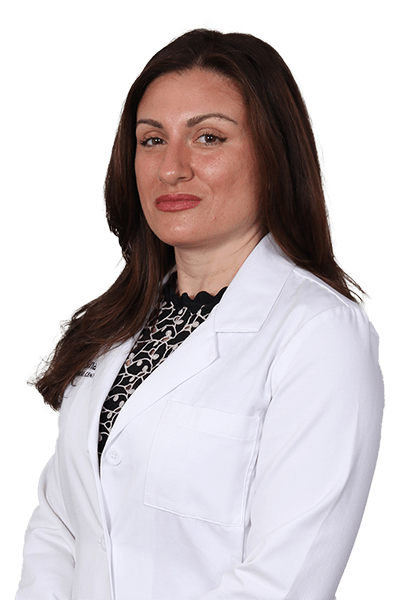Wien Center For Alzheimer's Disease & Memory Disorders
A Comprehensive Approach
Alzheimer’s disease is the most common cause of dementia among older adults. The Wien Center for Alzheimer’s Disease and Memory Disorders at Mount Sinai Medical Center offers hope through screening programs; early diagnosis; delaying progression by treating memory, cognitive problems and behavioral disturbances at an early stage; supporting and providing education to the caregivers and the public; and in conducting cutting-edge research. The Wien Center’s multidisciplinary approach incorporates neurology, psychiatry, geriatrics, diagnostic imaging, counseling, social support and referral to appropriate community resources to develop successful and effective treatment options for Alzheimer’s disease and other forms of dementia and memory disorders.
Diagnosis
Alzheimer’s disease is just one of a number of potential reasons an individual may experience memory loss. Side effects of medications, depression and anxiety, endocrine problems, stroke, vision or hearing loss, cardiac or pulmonary disorders or vitamin deficiencies can also trigger memory problems. The Wien Center’s highly trained medical team utilizes comprehensive evaluation and neurocognitive testing to diagnose each patient. Free memory screenings also are available as an initial step in the diagnostic process.
Treatment
Wien Center specialists develop comprehensive treatment plans according to each patient’s specific needs. Treatment may include referrals to medical specialists, as well as carefully supervised drug therapies and behavior management programs. Cognitive exercise interventions are available to help patients maintain mental function, and the Wien Center offers eligible patients the opportunity to participate in clinical trials that investigate new treatment options aimed at slowing or delaying the symptoms of the disease.
Case Management and Caregiver Support
The Wien Center’s medical team understands the unique challenges faced by family members who care for individuals with Alzheimer’s. Caring nurse practitioners, mental health counselors, social workers, medical assistants and psychologists provide a unique approach toward enhancing support for caregivers. The center also helps families connect with various community resources, including home health care, adult day care, respite care and homemaking services. Educational workshops and seminars, caregiver training and support groups also are available.
Education
For more than a decade, the Wien Center has hosted the Mild Cognitive Impairment (MCI) Symposium, an international conference that focuses on advances in the study, diagnosis, prevention and treatment of mild cognitive impairment, which is the earliest stage of impairment at which Alzheimer’s disease can be diagnosed. The conference includes a community educational forum designed to educate the general public, especially those at greater risk for Alzheimer’s, about the latest advances in the diagnosis and treatment of Alzheimer’s disease, as well as its prevention.
We have also compiled a comprehensive information packet about Alzheimer’s disease and memory disorders.
We have also compiled a comprehensive information packet about Alzheimer’s disease and memory disorders.
Medical Excellence and Research
The Wien Center participates in national and international research and clinical trials for Alzheimer’s treatment and prevention. The Wien Center is the lead institution for the Florida Brain Bank, which helps researchers gain a better understanding of Alzheimer’s and other memory disorders and provides resources for researchers around the globe to study the disease. The Wien Center’s leadership in the field of memory disorders has also helped Mount Sinai Medical Center earn recognition from U.S. News & World Report as One of America’s Best Hospitals. The center also has earned a number of prestigious grants, including funding from the National Institutes of Health (NIH) to conduct cutting-edge research on Alzheimer’s disease, and to be a major participant in an NIH initiative establishing Florida’s first Alzheimer’s Disease Research Center (ADRC), one of only 31 ADRCs in the nation.
Complimentary Memory Screening
Early diagnosis is the key to controlling Alzheimer’s disease and other memory disorders. The Wien Center provides early assessments through its free memory screening program for individuals age 50 and older who frequently:
- Repeat questions
- Misplace possessions
- Are at a loss for words
- Forget recent events, conversations and names of friends or relatives
- Confuse sense of direction and time and become lost in familiar places
- Have difficulty performing chores or using appliances and tools
- Have difficulty handling finances
- Show changes in mood and/or personality
Screenings are available on the Mount Sinai Medical Center campus on Miami Beach. To schedule a free memory screening, please call 305.674.2037.
One of the perplexing mysteries about Alzheimer’s is what makes certain people contract the disease as well as other forms of cognitive impairment and dementia, while others do not. Before a patient is diagnosed with Alzheimer’s disease, more than 60 different possible causes of memory loss or dementia are investigated including: certain medications, tumors, diabetes, stroke, depression, decreased vision, hearing loss, heart complications or vitamin deficiencies.
The Wien Center team of professionals provides a comprehensive diagnostic evaluation which includes a thorough interview with both the patient and an informant, focusing on key parts of the history such as the onset of the disorder, presenting symptoms, functional changes, psychiatric symptoms, past medical history, psychosocial factors and family history. Similarly, neurocognitive testing covering areas of attention, memory, executive function, visuo-spatial skills and language is performed. A wide array of diagnostic tools such as high resolution MRI, CT Scan, PET Scan, blood work and EEG, are obtained when appropriate, to complement the clinical evaluation.
What to Expect During Your First Visit
The comprehensive outpatient evaluation usually takes 2 to 3 hours to complete. You will receive a questionnaire via email, fax or regular mail after you schedule your visit. You also may download the questionnaire in English by clicking here. Download the questionnaire in Spanish by clicking here.
This questionnaire should be completed in advanced by a knowledgeable informant with the collaboration of the patient for relevant details. The day of the visit the patient and his/her companion will be interviewed separately and together by different staff members, including a medical assistant, psychometrist, social worker and a neurologist to complete the evaluation. A summary of the evaluation will be discussed with you and your family by the end of the visit and further testing and treatment will be recommended depending on each individual case.
Things to remember for your visit:
- Come with an informant
- Remember to complete the questionnaire prior to your visit
- Bring a list of your medications
- Bring the results of prior testing, neuropsychological evaluations, and brain scans, including the actual images of tests like MRIs, CT Scans or PET Scans done in the past.
Free screenings are available at the center for those over the age of 50. For more information, call 305-674-2543 for an appointment.
The Wien Center is committed to the advancement and development of new diagnostic tools and treatment options for patients with memory disorders. As part of this effort, we are currently conducting several studies with patients in all different stages of the disease. Below you will find a description of each one of the studies being conducted at the Wien Center. If you would like to speak to someone about participating in one of our studies, please contact Adriana Bohorquez at 305.674.2037.
For many years, Mount Sinai has provided the community with vital memory screenings for seniors, free of charge. While they are not used to diagnose a particular illness, these screenings are the first step in determining whether an individual has memory problems and they can indicate whether he or she may benefit from a more complete medical visit.
Are you or a loved one having memory problems?
A quick 5 minute questionnaire can help.
The Wien Center for Alzheimer’s Disease and Memory Disorders at Mount Sinai Medical Center has a multidisciplinary team of professionals who provide a comprehensive diagnostic evaluation and treatment plan for patients with memory disorders. The brief questionnaire below can help determine if you or a loved one might be at risk of developing a memory order where further evaluation may be needed. If you have any further questions after taking this preliminary test or to make an appointment at the Wien Center, call 305-674-2543.
The Wien Center’s caring social workers, nurses, counselors and psychologists understand the unique challenges and needs that memory disorder patients present to their families and caregivers. We connect families and caregivers to various community resources, including home care, day care, respite care, advance directives and long-term placement options.
Our Physicians
Ranjan Duara, MD
Medical Director, Wien Center for Alzheimer’s Disease and Memory Disorders
- Neuroscience
- Neurology
- Alzheimer’s Disease
- Memory Disorders
- Mount Sinai Medical Center (Main Campus)
- (305) 674-2543
Melissa Verzura, DO
- Psychiatry
- Mount Sinai Medical Center (Main Campus)
- 305.674.2543



